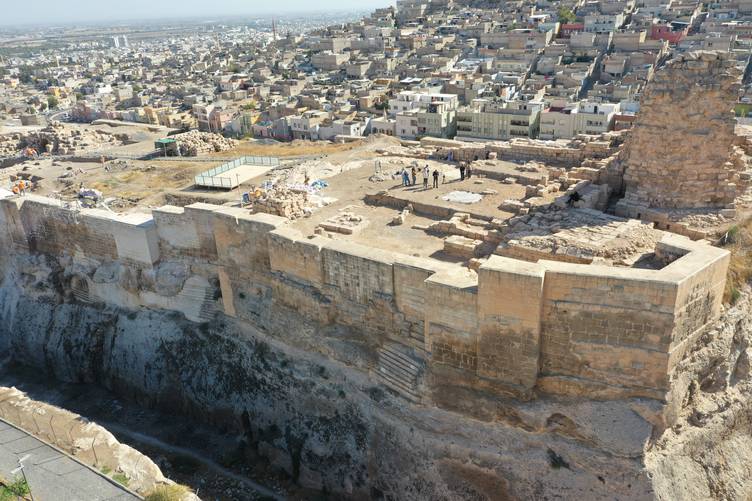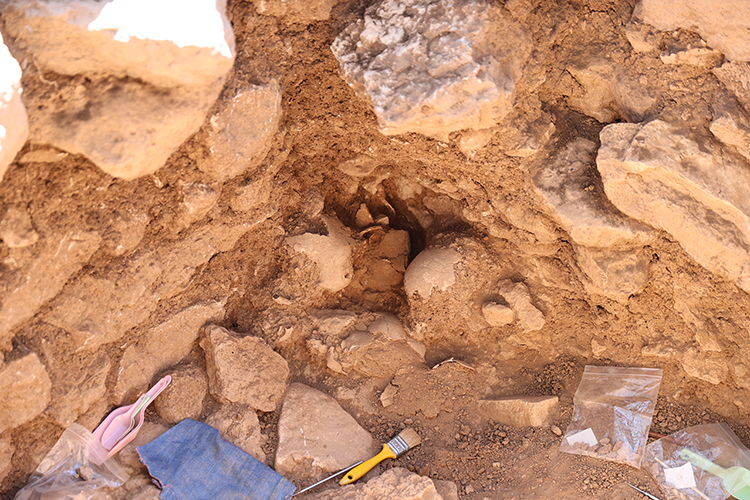
1,500-Year-Old Greek Mosaic Unearthed at Urfa Castle Reveals Names of Early Byzantine Clergy
Archaeologists working at the ancient Urfa Castle in southeastern Türkiye have uncovered a 5th-century Greek-inscribed floor mosaic decorated with intricate plant, animal, and geometric motifs. The discovery, believed to belong to a small church, chapel, or martyr shrine, provides new insights into the religious and social hierarchy of the early Byzantine city of Edessa —

12 Ancient Human Skulls Unearthed at Sefertepe, Offering New Insights into Neolithic Rituals
Archaeologists excavating the prehistoric site of Sefertepe in southeastern Türkiye have uncovered 12 additional human skulls dating back approximately 10,500 years. The discovery, part of the landmark “Taş Tepeler” (Stone Hills) project, sheds new light on Neolithic ritual practices in the region. Sefertepe, one of the key Neolithic sites under the “Şanlıurfa Neolithic Research Project

Sayburç to Feature a Village Museum Showcasing Neolithic Heritage and Urfa’s Living Culture
In Şanlıurfa’s Sayburç, one of the key sites of Türkiye’s “Taş Tepeler Project,” archaeologists plan to preserve 9,000-year-old Neolithic remains while also creating a unique village museum that highlights the region’s mid-20th-century rural life. Excavations at the early Neolithic settlement of Sayburç, located in the heart of Türkiye’s historic Şanlıurfa province, are revealing not only
